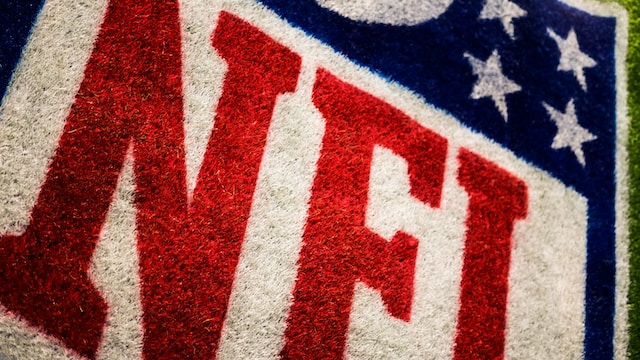 11.01.2024 - Imagine the thrill of scouting college prospects, the agony of draft day decisions, and the elation of hoisting the Lombardi Trophy – all from the comfort of your bedroom. This has been the captivating allure of NFL manager games for generations, a digital gridiron where fans transform into armchair GMs, weaving dynasties and rewriting history.
11.01.2024 - Imagine the thrill of scouting college prospects, the agony of draft day decisions, and the elation of hoisting the Lombardi Trophy – all from the comfort of your bedroom. This has been the captivating allure of NFL manager games for generations, a digital gridiron where fans transform into armchair GMs, weaving dynasties and rewriting history.

Credit: Adrian Curiel
But like the real NFL, the world of manager games has undergone a dramatic evolution, propelled by technological leaps and a constant craving for authenticity.
Early Days: Dice, Paper, and Pure Grit
The earliest NFL manager games emerged in the analog era, where spreadsheets and dice rolls ruled the field. Games like APBA Pro Football and Strat-O-Matic demanded dedication bordering on obsession.
Every play was meticulously charted, every yard meticulously tracked, with even the greatest strategies facing long odds to win against a lucky roll and the intricate calculations of complex playbooks. These games fostered a deep understanding of the sport, turning players into miniature Bill Belichicks, dissecting formations and exploiting mismatches on paper. While clunky by today's standards, these pioneers laid the groundwork for the digital revolution to come.
Enter the Pixelated Playbook: The Dawn of Digital Dynasties
The 1980s witnessed the birth of digital NFL manager games, ushering in an era of pixelated playbooks and joystick-controlled draft days. Titles like "Tecmo Bowl" and "Madden NFL" offered a simplified yet addictive experience, where on-screen action replaced pen-and-paper simulations.
These games brought the drama of the NFL home, allowing fans to call plays, manage rosters, and even experience the agony of fumbles through grainy 8-bit graphics. But the true innovation lay in the potential for online competition, laying the seeds for leagues and rivalries that transcended living rooms.
Deeper Simulation, Deeper Strategy: The Age of Analytics
As computing power grew, so did the complexity of NFL manager games. Titles like "Dynasty League Football" and "Football Mogul" introduced intricate salary caps, detailed scouting systems, and multi-year roster management. These games weren't just about Sunday's game; they were about building dynasties, crafting long-term strategies, and navigating the complex economics of the NFL.
NFL analytics became king, with players poring over stats, analyzing draft prospects, and optimizing their playbooks for maximum efficiency. The human touch remained, however, as gamers wrestled with gut instincts versus cold calculations, balancing on-field performance with locker-room chemistry.
Beyond the Stats: Adding the Human Touch
While simulation and strategy became hallmarks, developers recognized the human element as the lifeblood of the genre. Games like "Front Office Football" and "Franchise Hockey Manager" incorporated player personalities, morale systems, and even contract negotiations, adding a layer of interpersonal complexity to the traditional management experience.
Suddenly, managing egos became as important as managing salary caps, with disgruntled veterans and locker room leaders impacting on-field performance. This focus on the human element added a depth and realism that resonated with fans, blurring the line between armchair GM and virtual coach.
The Cloud, the Community, and the Future of the Gridiron
Today, the world of NFL manager games finds itself at a crossroads. Cloud-based platforms like "Draft Day Sports" and "Pro Football GM" connect players across the globe, fostering vibrant online communities and leagues with hundreds of competitors.
Mobile apps like "Retro Bowl" and "Football Manager" put miniature pocket GMs in everyone's hands, making management accessible on the go. Meanwhile, augmented reality and virtual reality experiences are on the horizon, promising to immerse players in the game like never before.
Conclusion: Beyond the X's and O's, a Game of Passion and Connection
The evolution of NFL manager games is a testament to the enduring passion for the sport, the constant thirst for innovation, and the yearning for connection. From humble beginnings with dice and paper to the intricacies of online leagues and cloud-based simulations, these games have mirrored the changing landscape of the real NFL, while staying true to the core principle: putting fans in the driver's seat, where every draft pick, every trade, and every Hail Mary pass carries the weight of history and the thrill of victory.




